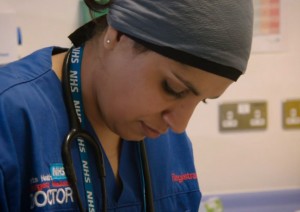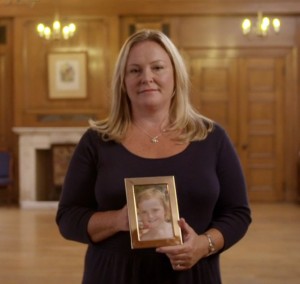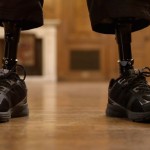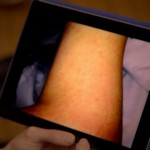Michael Mosley “There are some conditions, like heart disease, where most people are aware of the signs and symptoms. But there is a condition which kills over 30,000 people every year, which people are not really aware of. That is a shame, because if they were, many lives could be saved. Sepsis, and Dr Saleyha Ahsan will tell us more.”
Sepsis - A little-known Killer

Dr Saleyha Ahsan “This little-known killer is called sepsis. it can strike any of us at any time, but its early signs can be difficult to spot. But now survivors of the condition are sharing their experiences so that we can all learn what to look out for. And across the nation, doctors and campaigners are working to raise awareness of sepsis so that more lives can be saved.
Sepsis causes around eight million deaths worldwide every year, and 37,000 of those happen here in the UK. That’s more than breast, bowel and prostate cancer combined. Yet very few people have even heard of it, and fewer still understand it.
You may have heard it called septicaemia, or blood poisoning, but it isn’t actually an infection. It is caused when the immune system reacts to an infection in a way that’s abnormal and dangerous.”
Septicaemia, or Blood Poisoning

Mandy “My daughter had sepsis. Her body shut down.”

Sepsis Survivor “I woke up three weeks later, I couldn’t lift my hands. I couldn’t feel my legs. I couldn’t speak, either. I just wondered what had happened to me. How did this happen?”
Dr Saleyha Ahsan “The trigger for sepsis can be as simple as a cut finger. But in a matter of days, even just hours, it can develop into a catastrophic attack that threatens the body’s own tissues and organs.
If sepsis isn’t recognised early and treated quickly, it can lead to shock, organ failure and death. And those lucky enough to survive may have to live with amputations and lasting health problems.
Any of us can get sepsis, and it can be triggered by any kind of infection, even minor. Yet it can be surprisingly difficult to spot. So listening to survivors can help us all learn what symptoms to look out for.”

Young Survivor “It came on really, really suddenly - I woke up in the middle of the night feeling very cold but kind of sweaty and feverish and shaking a bit, and I thought, ‘OK, this is great, I’ve got the flu.’, It started off with flu-like symptoms - temperature, shivering. About three days later I started getting stomach bug symptoms as well, so I had quite bad sickness and diarrhoea.”
Dr Saleyha Ahsan “Sepsis often starts with intense flu-like symptoms, but as it gets more severe, it reduces the blood supply to major organs, leading to some more distinctive symptoms.”
Young Survivor “For me it was the shivering and the shaking, just… I had absolutely no control over it. I was legitimately worried I was going to end up chipping quite a few teeth just because I was… my teeth were chattering. You’re trying to take in as much air as you can and it’s like there isn’t anywhere for that air to go so you can’t breathe in any more.”

Lady Survivor “I got very confused. And I think it may be that confusion that alerted my husband to get a doctor.”
Lady Survivor’s husband “My wife just said I was delirious, confused, and she just dialled 999 right away.”
Dr Saleyha Ahsan “Mandy, you’d noticed that Tilly hadn’t been wetting her nappies.”
Mandy “I don’t think it was particularly, something that stuck in my mind, but actually it should have been. If I’d had some information I might have picked up on it earlier and said ‘This isn’t right’”
Dr Saleyha Ahsan “Symptoms like these are signs that some of the body’s organs, such as the lungs, brain and kidneys, are being starved of oxygen and are going into failure.

A rash like this is caused by capillaries, tiny blood vessels, shutting down, and blood leaking into the tissues under the skin.
All of our survivors were close to death by the time they reached hospital. And some were instinctively aware of the danger - a feeling that shouldn’t be ignored.
This kind of direct feedback from people who’ve survived sepsis has been used to compile a list of six common red-flag symptoms.
- Slurred Speech or confusion
- Extreme Shivering
- Passing no urine in a day
- Severe Breathlessness
- I feel like I might die
- Skin rash or mottled skin
In babies and young children some of these symptoms will present differently. In babies you won’t notice that they’ve got slurred speech, but you might notice that they’re irritable, not feeding and not engaging. This makes children, like Tilly, particularly vulnerable.”
Mandy “We couldn’t really rouse her from her sleep, and her skin had gone mottled. I tried to give her a bottle and she wouldn’t take it, so at that point we literally put her in the car, and we had to drive 80 miles down to Southampton where they’ve got a paediatric intensive care unit, and from that point it sort of snowballed, and they said that she might not make because she had sepsis and she was in septic shock. I’d never heard of sepsis, didn’t know where to turn. Didn’t know where to get information.”
Dr Saleyha Ahsan “Although close to death when she was brought into hospital, thanks to a doctor’s speedy diagnosis, Tilly survived. One thing everone in our group had in common was a lack of existing knowledge about sepsis. That’s something I want to help change.”
References
All of the above information came from the BBC series Trust Me, I’m a Doctor
